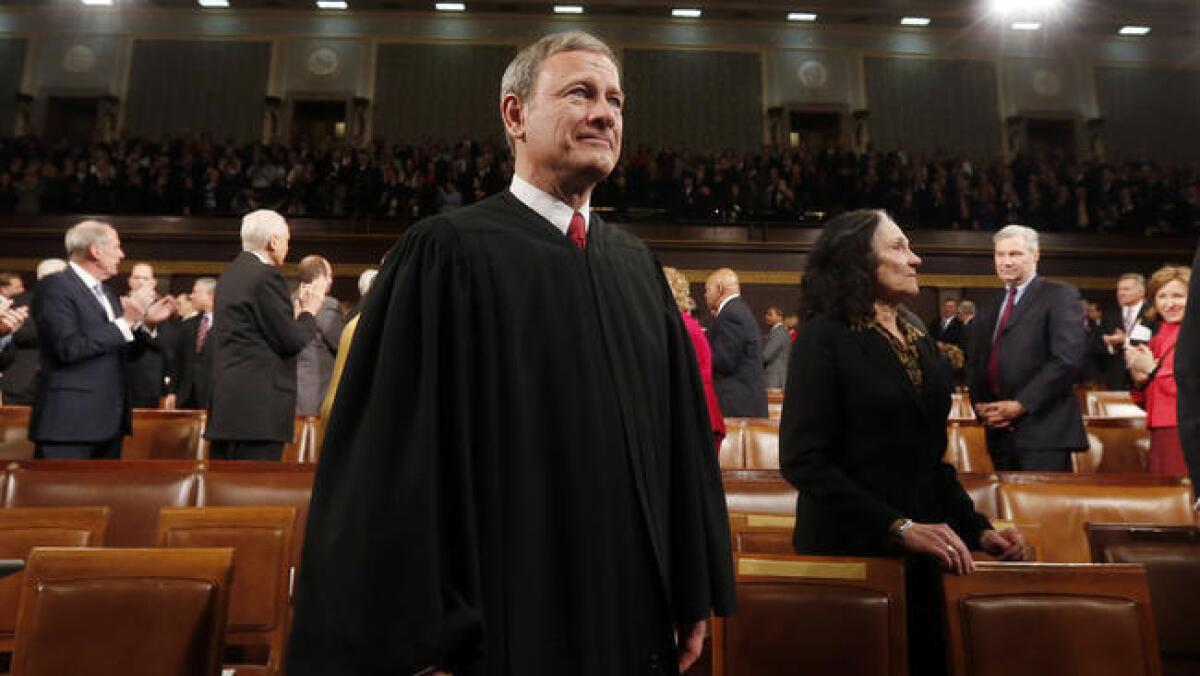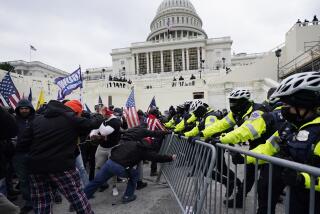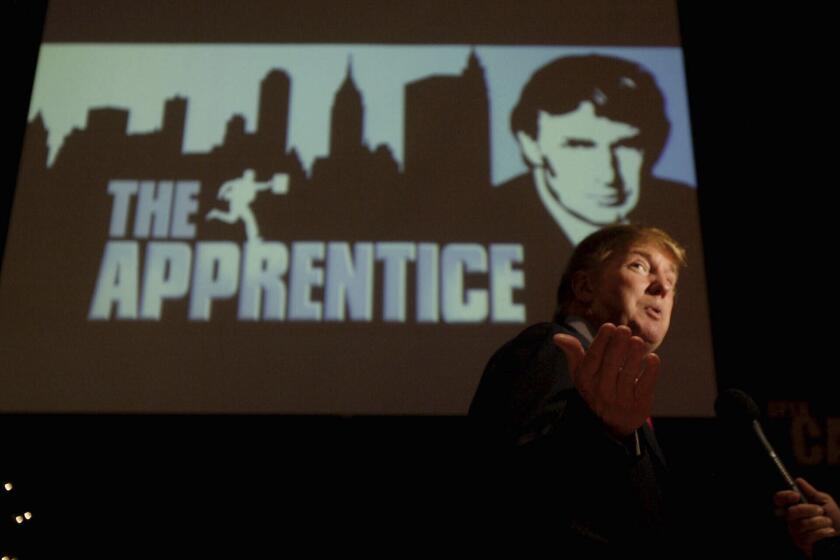Opinion: How far will Trump be allowed to go on Muslim immigrants? The Supreme Court may be giving us a preview

On Friday, Chief Justice John G. Roberts Jr. will administer the presidential oath of office to Donald Trump, who during his campaign called for “a total and complete shutdown of Muslims entering the United States until our country’s representatives can figure out what the hell is going on.” (Later, Trump softened that plank to an “extreme vetting” of migrants from countries with a history of terrorism.)
But on Wednesday, Roberts and his fellow Supreme Court justices were pondering whether a group of mostly Muslim foreign nationals rounded up after the 9/11 attacks and held in sometimes brutal conditions will finally have their day in court.
The impending inauguration of a man who had advocated a Muslim shutdown gave an eerie resonance to the oral argument in the case of Ziglar vs. Abbasi.
In that case (and two related ones), eight former detainees who were in the country illegally at the time of their arrests are trying to sue former U.S. Atty. Gen. John Ashcroft, former FBI Director Robert Mueller and James Ziglar, the former commissioner of the Immigration and Naturalization Service. The other defendants are the detainees’ jailers.
In the aftermath of 9/11, federal authorities, fearful of a repeat attack, threw out a dragnet that enmeshed 762 foreign nationals — 24 already in the custody of immigration authorities and 738 who were picked up on the basis of often vague or inaccurate tips. The detainees were held for as long as eight months in some cases at detention centers in Brooklyn and New Jersey and were unable to contact relatives or lawyers. They were subjected to what the Justice Department’s inspector general concluded was a “pattern of physical and verbal abuse.”
At Wednesday’s argument, it looked bad for the plaintiffs despite a skillful and passionate presentation by their lawyer, Rachel Meeropol. The court in the past has made it extremely difficult for plaintiffs to sue public officials personally for civil rights violations, and in 2011 the court rejected an attempt by a U.S. citizen arrested as a material witness after 9/11 to bring a lawsuit against Ashcroft.
The plaintiffs’ prospects are also clouded by the fact that two liberal justices — Sonia Sotomayor and Elene Kagan — aren’t participating in the case. That means the conservatives justices, who don’t seem inclined to allow the plaintiffs to take Ashcroft and the others to court, will probably reverse the federal appeals court that ruled in the plaintiffs’ favor.
Roberts seemed to speak for them at the argument when he worried that, if the plaintiffs won, officials would be “over-deterred” from taking necessary action in a crisis. “They’re going to say, ‘Well, gosh, if, you know, I’m wrong, I’m going to be sued,’ he said. (He did suggest that Congress, rather than the court, might step in to authorize redress for people in the plaintiffs’ position. Don’t bet on that.)
I don’t doubt the sincerity of Roberts’ concerns. But the president of the United States on 9/11 hadn’t campaigned for the White House on a platform of a Muslin shutdown, and in the aftermath of the attacks George W. Bush went out of his way to reassure American Muslims that America wasn’t in a war against Islam. Yet still his subordinates in the aftermath of 9/11 set in motion, perhaps with the best of intentions, an operation that led to not a Muslim shutdown but a Muslim lockup.
As Roberts swears in the next president, he might wonder what would happen if another 9/11 occurred on this very different president’s watch and some of his subordinates down through the chain of command remembered his campaign rhetoric.
Follow the Opinion section on Twitter @latimesopinion and Facebook
More to Read
A cure for the common opinion
Get thought-provoking perspectives with our weekly newsletter.
You may occasionally receive promotional content from the Los Angeles Times.











